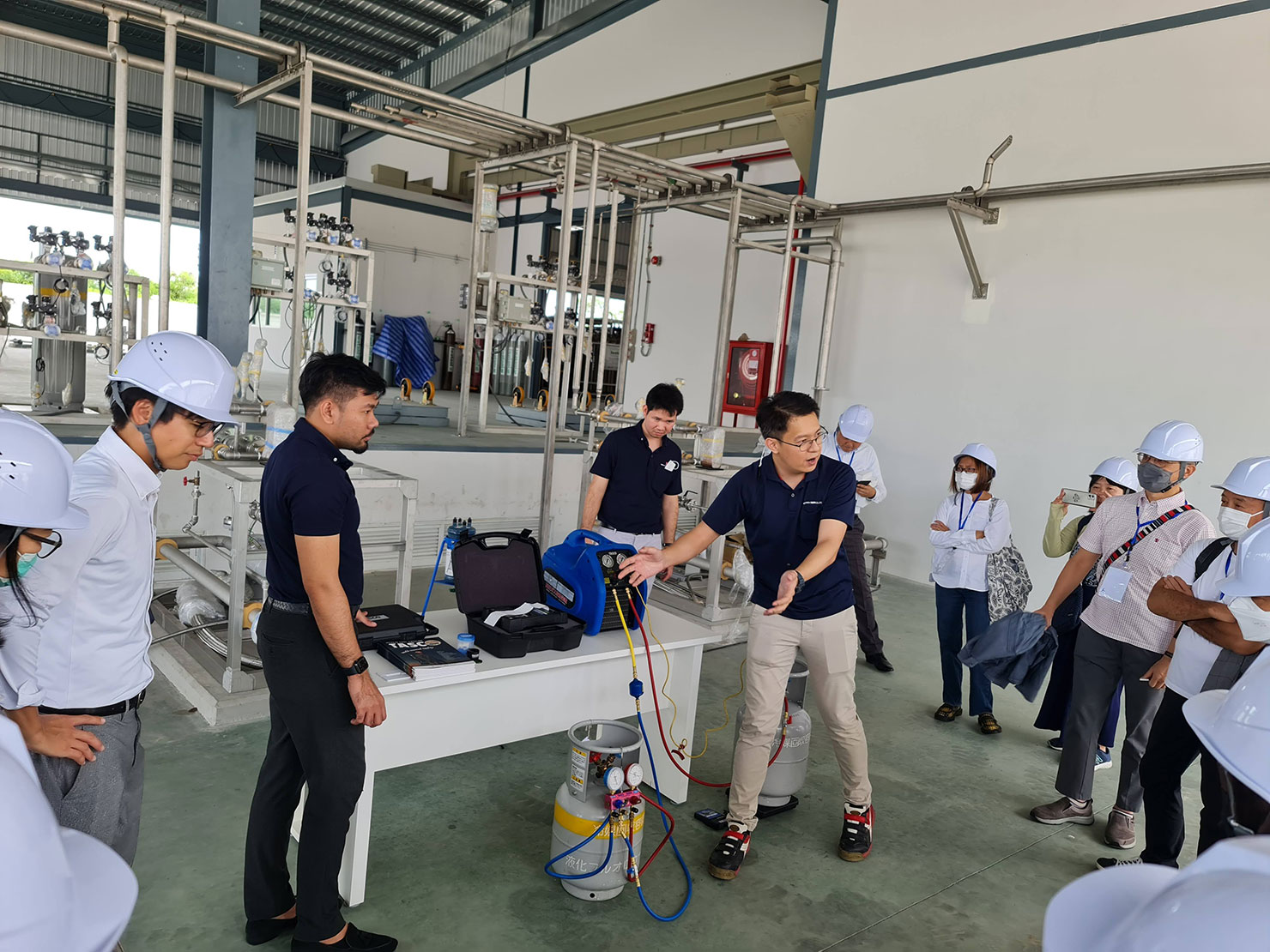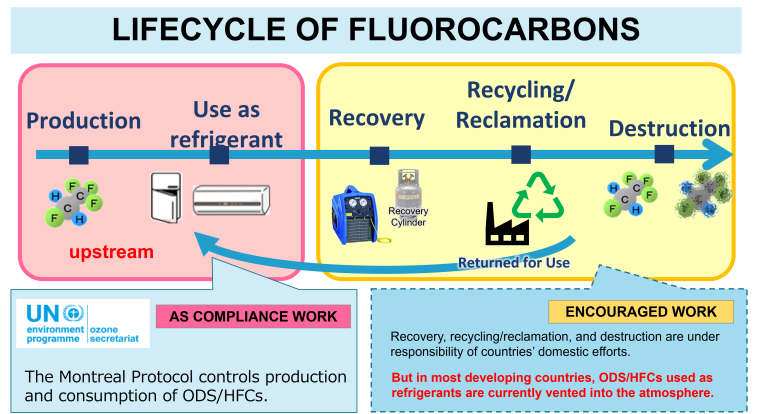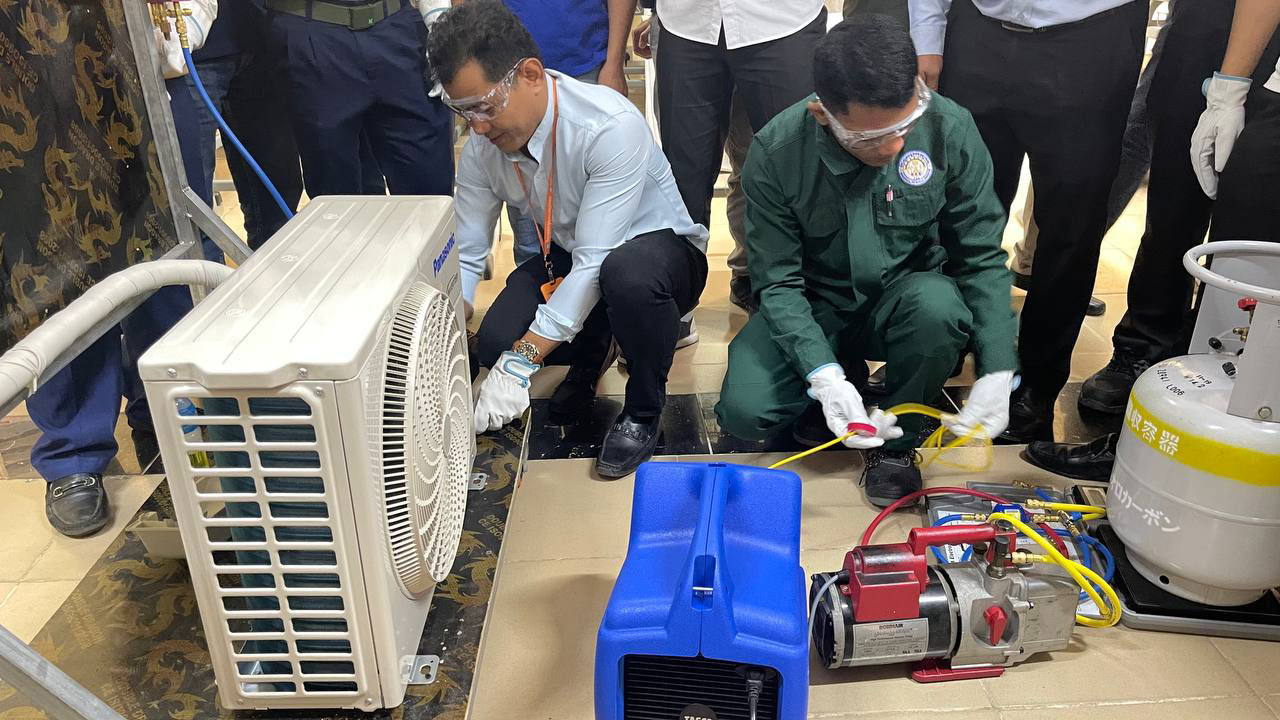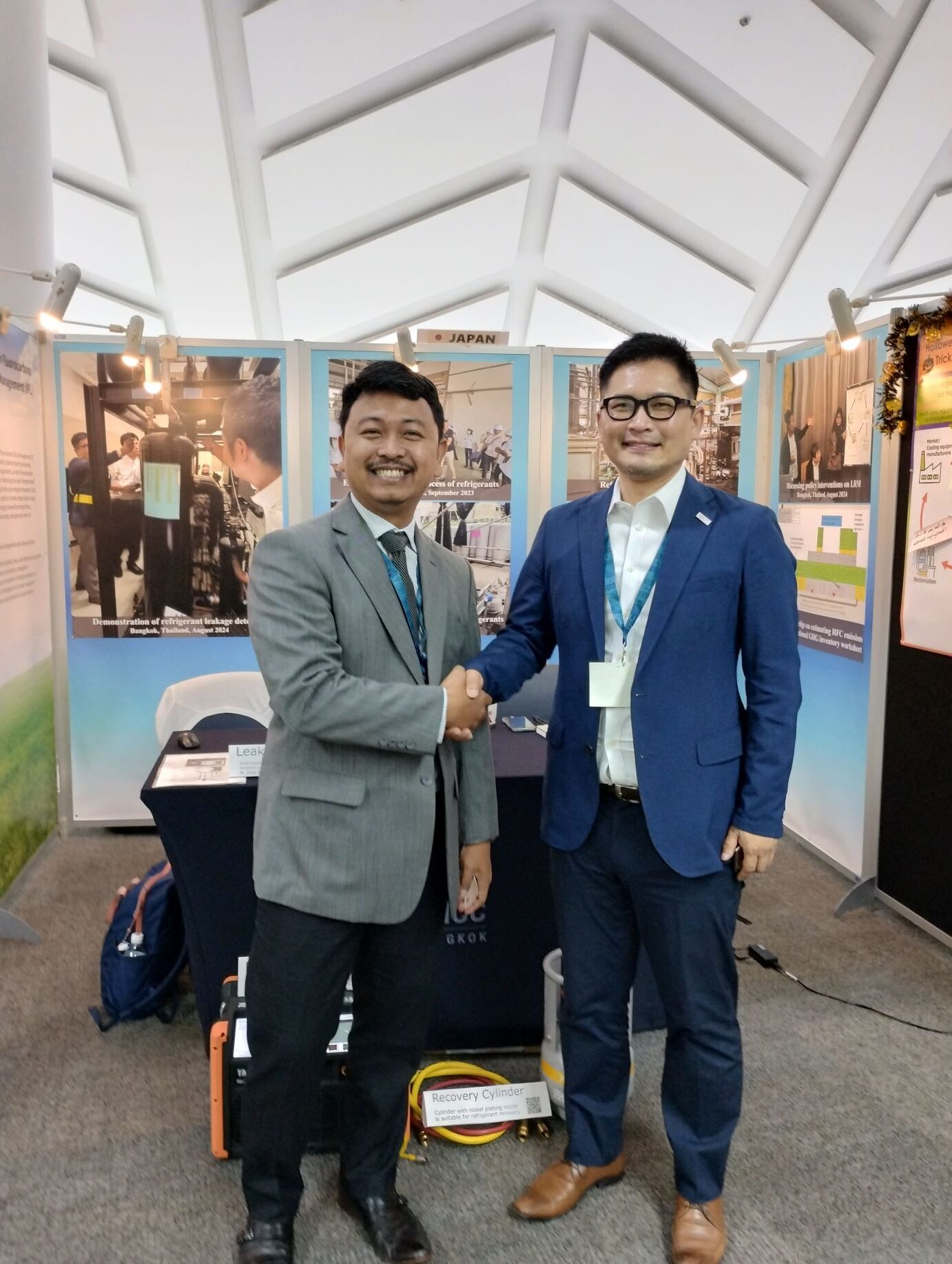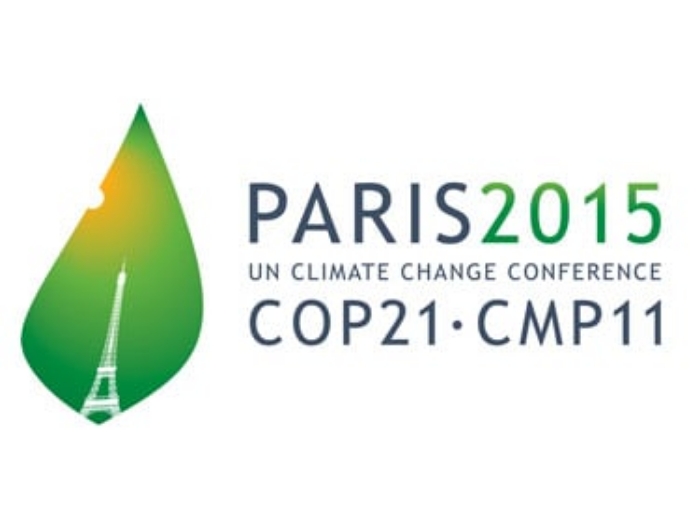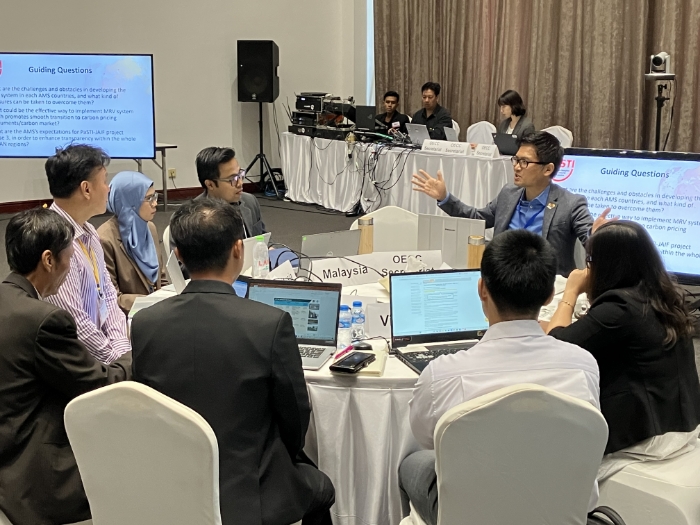We provide on-site training for various countries’ engineers who are responsible for the proper installation of air conditioning, refrigeration equipment and the recovery of refrigerants at the time of equipment disposal, with Japanese engineers as instructors. This ensures safe handling of high-pressure refrigerants, reducing refrigerant emissions into the atmosphere and improving energy efficiency of equipment.
As highly efficient equipment and low-GWP (Global Warming Potential) refrigerants are often expensive, initial investment at the time of installation is often a bottleneck especially in developing countries, even though energy savings may pay for the investment in the long run. It is also not easy to turn the disposal of used refrigerants into a profitable business. We help with project formation by supporting matching with appropriate financial resources and introducing policies that make refrigerant conversion and recovery measures necessary and advantageous.


